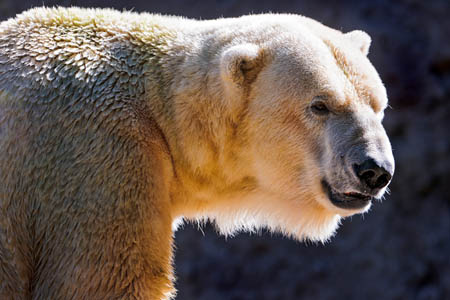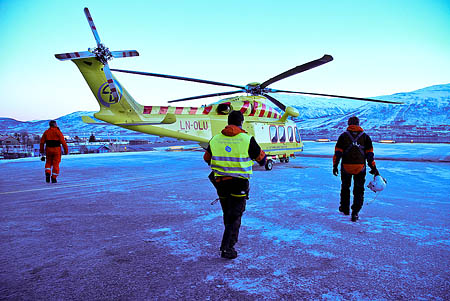
The trip wires and flares set up to protect against polar bears did not work. Photo: Tambako the Jaguar CC-BY-ND-2.0
Authorities in Svalbard say no-one will be prosecuted over the death of a 17-year-old Eton College student who was attacked by a polar bear last year.
Horatio Chapple was with a group from the British Schools Exploring Society on the Von Postbreen glacier on Spitsbergen, the largest island in the Norwegian Arctic archipelago.
A police investigation carried out under the control of the Governor of Svalbard found that no criminal offence had taken place.
Mr Chapple’s parents have appealed against the decision not to prosecute following the incident, in which four other people were injured when a 250kg (40-stone) polar bear made its way into the group’s camp.
The Governor’s office said: “Police officers at the Governor’s office have carried out a number of interviews and reconstructed the chain of events.
“Tripwire flares had been set up around the tent camp, and the group had two signal pens and a rifle.
“The equipment had been tested earlier, but the tripwire did not detonate when the bear entered the camp. A leader tried to fire a shot with the rifle, but did not succeed.
“When he managed to fire the rifle, the bear had already killed the 17-year-old, and wounded four others, amongst them himself.
“Technical studies have revealed that there were no malfunctions to the rifle, the cartridges or the tripwire flares.
“The investigation shows that there were a number of unfortunate circumstances that led to the tragic accident.”
The bear was subsequently killed and taken to Longyearbyen. Patrick Flinders of Jersey, another of the young expedition members, was injured after trying to fend off the animal, which struck him across his head and arm with its paw.
Scott Smith and leaders Michael Reid and Andrew Ruck were also flown to the University Hospital of North Norway in Tromsø.
An earlier report by the Governor’s office in January said: “No defects were detected in the tripwire system, but it is possible to set it up in a way that makes it not function.”
The tests were carried out by technicians from Kripos, the national criminal investigation service.
The January statement said: “The bear entered the camp without setting off the tripwire. A man tried to shoot the bear, but had problems firing shots. After he had emptied the magazine once, the man was able to shoot the bear after he reloaded.”
The Governor’s office said it did not find that BSES or the individuals at the camp acted with a degree of negligence qualifying for criminal liability.
The 17-year-old from Salisbury in Wiltshire was a student at the top college in Windsor, Berkshire. He was with a group of 12 other young people and adult leaders which was part of a bigger group.
BSES chairman Edward Watson said: “BSES has received the official police report from the Governor of Svalbard into the tragic death of Horatio Chapple.
“It has been passed to Sir David Steel, who is carrying out an independent inquiry into this tragedy, to establish what lessons we must learn for the future.
“BSES will not be commenting on the Svalbard Governor’s report, or on any of the events surrounding Horatio’s death, until such time as Sir David has completed his inquiry and published his findings.
“Those most closely affected, particularly the Chapple family, remain uppermost in our thoughts at this especially difficult time for them.”
